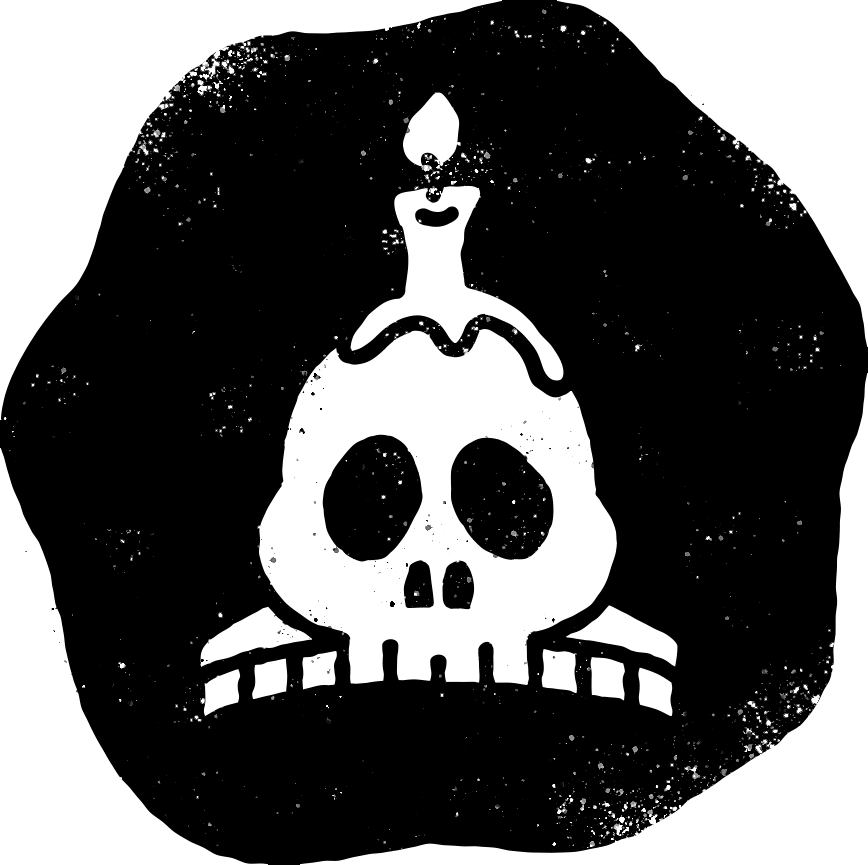Cutting
Twin Arrows abandoned trading post in Arizona
I started cutting when I was 16 years old. Almost exactly nineteen years later, the once-red and puffy scars have mostly faded and flattened. My memories of the moments that led to me sterilize my X-ACTO knife and drag it across my upper thighs—and the years of blood and bandages, shame and secrets that followed—have receded as well. But I’ve always been a writer and a textbook Virgo; I keep fastidious notes. So I know exactly when I chose this particularly gruesome coping mechanism, because on June 6, 2002, I wrote in my journal: “I cut myself tonight. Translated feelings for actions, trading pain for pain. I have a high tolerance for pain. I scarily enjoyed it.”
The “why” part is more complicated, but I was surprisingly cognizant of that too, at least as much as I could be as an extremely introverted, sexually confused, teenage girl. Growing up in Ohio, my life was full of love and laughter—what we didn’t have as a family were conversations. Unspoken issues aren’t as immediately alarming as physical violence or screaming fights, but over time they’re just as corrosive.
On the surface, I more or less knew why I was struggling. I was also convinced that my problems paled in comparison to others’, and voicing them would only make me appear weak and selfish. I kept a running list of all of the reasons why I shouldn’t feel the way I really did (one of many habits that I’m trying to break today) and I thought the only thing worse than disappointing my parents was to add to their respective piles of trauma.
My parents weren’t even thirty by the time they had two daughters and a dead son. They were barely out of their teens when they got married (my mom was actually 19) and nine months later, my sister was born. A baby boy followed, and Matthew was only four months old when he died of SIDS (sudden infant death syndrome). Two-and-a-half years later, I arrived and survived—conceived on purpose to replace the one who hadn’t.
Growing up, my sister used to tell me that if Matthew hadn’t died, I wouldn’t have lived. It’s probably true, but it’s weird to grow up in the shadow of a brother you’ve never met. It was never explicitly stated that expectations were high for me—and it’s entirely possible that most of the pressure I felt to be perfect was self-generated. But my parents lost a son and their consolation prize was me: a queer, boyish girl. There’s a common misconception that cutting is in some ways, suicidal; for me it was always the opposite. I longed for love and life so intensely that I grasped at anything to help me get safely through to the other side—scarred and scared, yes, but a safe life without shame or secrets was always the ultimate goal.
My sister also insists—in part thanks to our 7.5-year age difference—that we had an entirely different set of parents, and she’s probably right about that too. I was raised by two people who loved me unconditionally and told me that I could do anything. And for 16 years that had been mostly true. My parents would probably disagree about whether I was a good kid by nature or nurture (I say both), but I mostly kept to myself and didn’t go looking for trouble. So when I developed feelings for my female high school teacher—and began questioning my sexuality in general—I feared that I was changing into someone my friends and family would no longer be able to understand.
South of the Border in South Carolina
When it became impossible to deny the truth, I lashed in instead of out. I punished myself for what I thought was not only a personal failure, but one that if exposed, would rip through my small family like a wildfire. “I don’t want any parents or relatives to find out. Never,” I wrote. I was talking specifically about the cutting, but continued, “Tonight grandma asked me if I wanted a ‘big splashy wedding’ and grandpa said that I better ‘marry a rich man.’ A man. I’m gay. How the hell am I going to tell them?!” So the secrets piled up like mismatched Jenga blocks, each one with a corresponding slash in my skin and a less stable foundation than the last. But even my self-mutilation wasn’t safe from my equally damaging self-criticism.
“I could have pressed harder,” I wrote on June 6. “I ran my fingers over the ten raised slightly scared slashes, they’ve hardly broken the skin. Nothing huge, I won’t die and I don’t want to. I know my life will get better. Not easier, just better … I know it’s not normal, but I’ve tried everything. If I try to gain anymore knowledge about myself I’ll explode. A few scratches seems less harmful. It’s a nice pain. Just enough to keep me thinking about it. They say actions speak louder than words. Mine are screaming.”
For too long, I thought if I was strong enough, I could just get over it—or that my feelings were something I could, and should “get over” in the first place. No matter what your circumstances, I think everyone can agree it’s hard to be 16 (or … any other age). “I just have such deep intense longings for near-impossible things,” I wrote. I both chastise myself for wanting more out of life, “Why can’t it all be enough?” I write several times, and recognize that a friend is being frustratingly flippant after I finally come out to her.
“She has no right to dismiss my problems unless she’s actually experienced them,” I wrote on June 24, 2002. “She has no idea what it feels like to be a constant contradiction. To thrive on your dream world, never actually getting to experience anything you ache so intensely for. She doesn’t know what it’s like to incessantly pretend, to lie, to omit thoughts, make up feelings while never quite deciphering your own. And she sure as hell doesn’t know what it’s like to be in so much emotional and unidentifiable turmoil that you intentionally inflict pain upon yourself because you’re confused, hurt, depressed, and you have no clue why.”
I conclude the entry with a sentiment that has aged much better than most of my chaotic and endlessly embarrassing journal entries: “Until she has thought my thoughts, and felt my feelings, lived my life, she has absolutely no right assuming that she knows what’s right. She doesn’t understand. Why does she pretend she does?”
My mind never stopped asking questions without easy answers—or screaming, in general—but I no longer expect it to. I stopped cutting and running my fingers over the raised lines a few years after I started, but I made more than 50 of them. It’s hard to get an accurate count today; skin sags and stretches, forever mutable like the painful memories I once etched into it. A few years ago, I decided to start getting tattoos over the scars. Not in an attempt to cover them, but to turn an area of my body that had served as a macabre art gallery of my mental anguish for far too long, into something more joyful. My plan worked too well: I quickly realized that if I wanted to show off my new ink, I’d be forced to expose my old scars in the process.
Twin Arrows tattoo by Kat | Jackalope tattoo by Karen Glass
My days of wearing a swimsuit in public had abruptly ended with the first swipe of that X-ACTO blade. They’ve resumed somewhat recently, but access to my upper thighs has always come with caveats: the shorts can’t be too short, no, you can’t come in the changing room, lights off before bedtime. I’m tired of constantly flipping through my mental Rolodex of who knows what; it’s a waste of time.
When the temperatures in D.C. recently began approaching 90, I started running in shorts shorter than any I’ve worn in 19 years; it feels both freeing and terrifying. I’ve been planning my next tattoos: a Mozart memorial piece and maybe even a Brood X cicada. I can’t be the only morose millennial to identify with the iconic insect; is there anything more gay than emerging after 17 (or more) years spent underground, immediately shedding your shell, growing wings, changing colors, and loudly announcing to the whole world: I am here and I am deserving of, and ready for, love.
Nearly two decades after I first cut myself, I long for different, but still sometimes impossible things—however, my coping mechanisms have become more self-constructive than destructive. I now run several times a week, an activity that feels strangely similar to cutting: I am once again translating emotional pain into physical action, only this time I’m carving my body from the inside out. I still feel protective of my parents, but I’m trying to communicate my feelings and ask for help when I need it. Losing one child is more than anyone should have to bear. I thought I was sparing their feelings by hiding mine, but I know now that in denying them access to the most vulnerable parts of me, I was doing us all a disservice. At least I was right about one thing: it never gets easier, but it does get better.
There were huge swaths of my life in which I abandoned my journals all together, and I both understand why and still regret it. It took me a while, but I’ve finally realized just how important it is for me to work through my screaming thoughts on paper, over the phone, or in person. I’ve made (and continue to make) a lot of questionable choices, but writing it all down as never been one of them. Words have always been my lifeline, an invisible hand reaching out across generations and experiences. No longer to destroy, but to create—to say, even if I’m only ever talking to myself: “You’re not crazy, and you’re not alone. You may never get over it, but you will get through it.”









